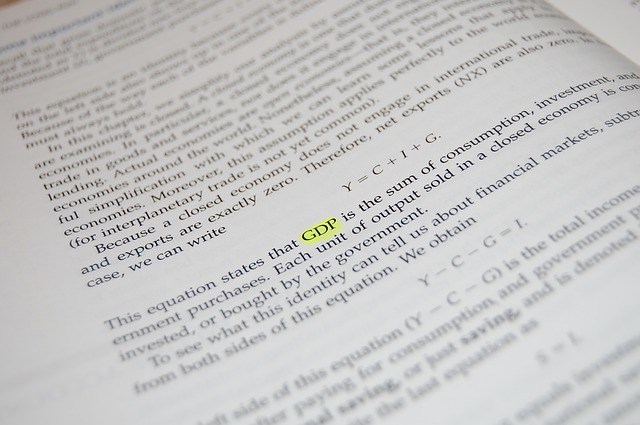
The Age-Old Question
Microeconomics vs Macroeconomics - Which Class Should I Take First?
Read a summary using the INOMICS AI tool
When you're just beginning your economics degree, you'll quickly come across two very important branches – microeconomics and macroeconomics. It's highly likely that you'll study both at some point during your degree, as they are two of the foundational planks of the subject. It is also likely, however, that you will have to choose which to take first, prompting the question: which is the best theoretical starting point for your studies?
Having just started out, this can be a tough question to answer. That's why we're going to give you a little run down of each, to help you make the most informed decision possible. So let's begin.
 What's the difference between macroeconomics and microeconomics?
What's the difference between macroeconomics and microeconomics?
Before making any decisions about which classes to take, you need to understand what each subject refers to. Microeconomics is the study of economic systems on a small scale; how economic theories play out when they are applied to an individual, a group, or a company. Macroeconomics, on the other hand, looks at entire markets or economies of countries or the world.
Microeconomics would include the study of supply and demand for a particular product, or examination of how a particular piece of legislation would affect an individual business in that area. A classic microeconomics topic is the study of how a single market changes due to monopoly. Macroeconomics, on the other hand, examines how economic theories apply to governments, markets, and international organizations such as NATO in the long run. Examples of the kind of topics studied in macroeconomics would include fiscal and monetary policy, economic development, or the economics of industrial organization and the labor market in a particular region.
Both micro- and macroeconomics can deal with similar issues, but on different levels. Consider, for example, the cost of living in a particular area, and its relation to inflation. This is related to microeconomics – because it's about how much people have to spend on housing, food, entertainment and so on – and can therefore be described on the individual level. But it's also an important topic in macroeconomics, as inflation is affected by things like interest rates, which are, in part at least, set by the state. It can therefore also be analyzed on the national level as a subject of macroeconomics.
The relevance of microeconomics and macroeconomics to economics in general
The two fields are often connected then: investigating the microeconomic parts of something often reveals important clues about the macroeconomics, and vice versa. One rough way of thinking about this is that microeconomics is 'bottom up', looking at how individual choices affect economic systems, while macroeconomics is 'top down', looking at how economic systems affect the people living within them. The complementary nature of the subjects is especially prevalent in discussions about creating macroeconomic models that have “microeconomic foundations”, one of the ongoing discussions in that field to this day.
As an illustration: to understand a complex issue such as how a state should adjust interest rates, you need to understand supply, demand, and how people make economic decisions. This would be microeconomics. Then you need to understand how these principles apply to monetary systems and the financial market, which would be macroeconomics.
Another difference between the two is that in microeconomics, there is little in terms of competing schools of thought; that is to say, economists generally agree on the principles. This is largely due to agreement on how to model human behavior- as fully rational individuals maximizing their own utility- which reduces many economics problems to a mathematical optimization. However, some fields of economics- like behavioral economics- study what happens when we relax that assumption.
Meanwhile, the tenets and models of macroeconomics are much more widely debated. There is consensus on many aspects of the field, but the incredible complexity of macroeconomics, and the drive to include more “micro” foundations in “macro” models, means the field is more dynamic. This is especially true in terms of forecasting. Thus, macroeconomics can be a more challenging, and perhaps more intellectually stimulating, area of study.
Should you take microeconomics or macroeconomics first?
Taking into account all of the above, most economics students are better off studying microeconomics first, and then progressing on to macroeconomics. That way, the principles of economics can be learned on an individual level, before being applied to the wider society and world. However, some would argue the principles of economics are better understood if first seen in practice – as in, first one must understand the financial system in order to make any sense of economics as a topic. These people would argue it can be helpful to study macroeconomics before microeconomics.
Your university may also roll both subjects into one unit such as an Introduction to Economics course, removing any need, on your part, to make a choice at all. In all likelihood, any of these options will allow you to learn what you need to progress in your studies, but in general, most students will opt to begin with microeconomics first. And in most cases, it is the safest bet.
A final point would be that the math used between the two fields varies, especially at the earlier stages of academic life. Microeconomics makes heavy use of optimization problems and some game theory, for example using derivatives to maximize utility or minimize loss. Macroeconomics places a much larger emphasis on analyzing growth rates and production function equations like Cobb-Douglas. This can take some getting used to as it is less immediately transferable from calculus class.
In the end, if you're planning on taking both it may be worth studying microeconomics initially. However, if you're only planning on taking one of the two – which is a rather unusual position to be in – pick whichever you find more interesting.
-
- Postdoc Job
- Posted 2 weeks ago
Research Associate (Post-doc, f/m) in the fields of applied econometric and distributional analysis
At LISER (Luxembourg Institute of Socio-Economic Research) in Esch-sur-Alzette, Luxembourg -
- Scholarship, Conference, Prize / Contest
- Posted 2 weeks ago
Call for Applications: Gateway to Global Aging Education Research Hackathon
Between 27 Jul and 30 Jul in Washington, United States
-
- Postdoc Job
- Posted 1 week ago
Postdoctoral Research Fellow Opportunity
At University of Notre Dame in Notre Dame, United States












